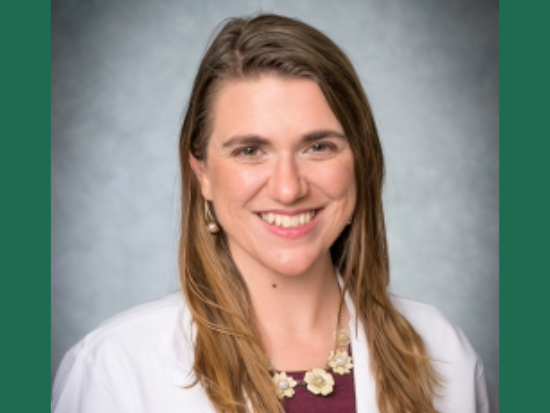 The UAB Department of Neurology welcomed Rebeka Sipma, M.D. to the faculty as an assistant professor in July 2024.
The UAB Department of Neurology welcomed Rebeka Sipma, M.D. to the faculty as an assistant professor in July 2024.
Sipma completed her Bachelor of Arts in Biology with minors in community development, Spanish, and chemistry at Covenant College in Lookout Mountain, Georgia. She pursued her medical education at Loma Linda University School of Medicine in Loma Linda, California.
She completed her intern year at the University of California, San Francisco, Fresno Medical Education Program, followed by a neurology residency at the University of California, San Diego, where she served as chief resident in her final year.
She also earned a certificate in tropical medicine from the University of Minnesota. In 2022, she joined UAB, where she completed a two-year fellowship in movement disorders.
Sipma reflects on what sparked her passion for medicine and expresses her enthusiasm for her new role.
What inspired you to pursue a career in this field?
Sipma: Science had always intrigued me, but I didn’t fully commit to a medical career until I spent my college summers with missionaries in Guatemala and Honduras. The doctors and nurses there had the privilege of caring for and forming relationships with people at their most vulnerable. In medical school, I became fascinated by the complexities of the brain and found a deep connection with patients who reminded me of my own family. Many of my relatives had experienced conditions like epilepsy, migraines, traumatic brain injuries, strokes, and Parkinson’s disease, so we had become well-acquainted with neurologists.
While many of these conditions remained stable or improved, my grandpa’s Parkinson’s disease continued to progress during my residency, prompting me to search for answers to the questions my family often asked. Throughout medical school and residency, I was also deeply inspired by the movement disorders faculty, who were exceptional teachers and clinicians. It’s an honor to now draw from both my personal and professional experiences to care for patients with Parkinson’s disease and other movement disorders.
What aspects of your new role here are you most excited about?
Sipma: Sharing knowledge is something I value deeply. I enjoy educating my patients about their diseases and treatments, guiding medical students and residents in recognizing and managing neurologic disorders, and collaborating on ongoing research. Over the past two years, I’ve benefited from incredible mentorship, and I look forward to passing that same support and guidance to those who follow in my footsteps.
What is your primary area of expertise, and what sparked your passion for it?
Sipma: I treat patients with a range of movement disorders, but I've gained specialized expertise in administering botulinum toxin injections for dystonia. This is a highly effective treatment, particularly for patients who often endure significant disability and may have spent years searching for both a diagnosis and relief.
What are your goals for making an impact through both your teaching and patient care in this role?
Sipma: My goal during my time here is to ensure my patients have access to the best therapies, research opportunities, and educational resources. I've also enjoyed collaborating with residents to deliver quality care to our patients at Cooper Green.
Juliana Coleman, M.D., assistant professor in the UAB Department of Neurology, and I are collaborating to establish global partnerships aimed at providing neurology education and skills training to general practitioners who have limited access to neurologists. I look forward to building connections and working with more of my neurology colleagues in the coming months and years.